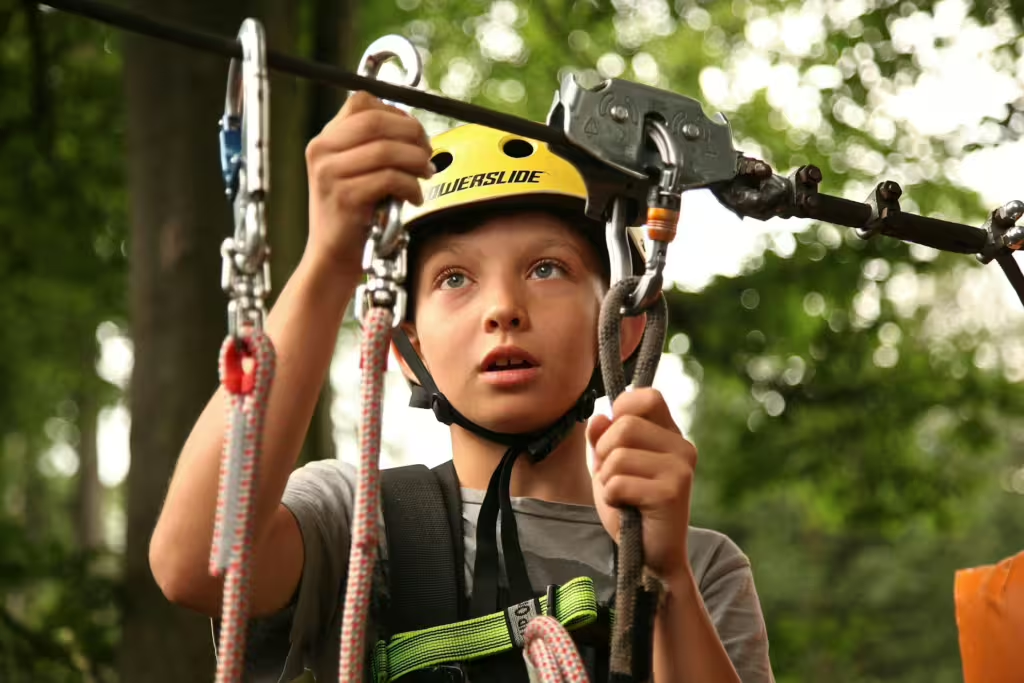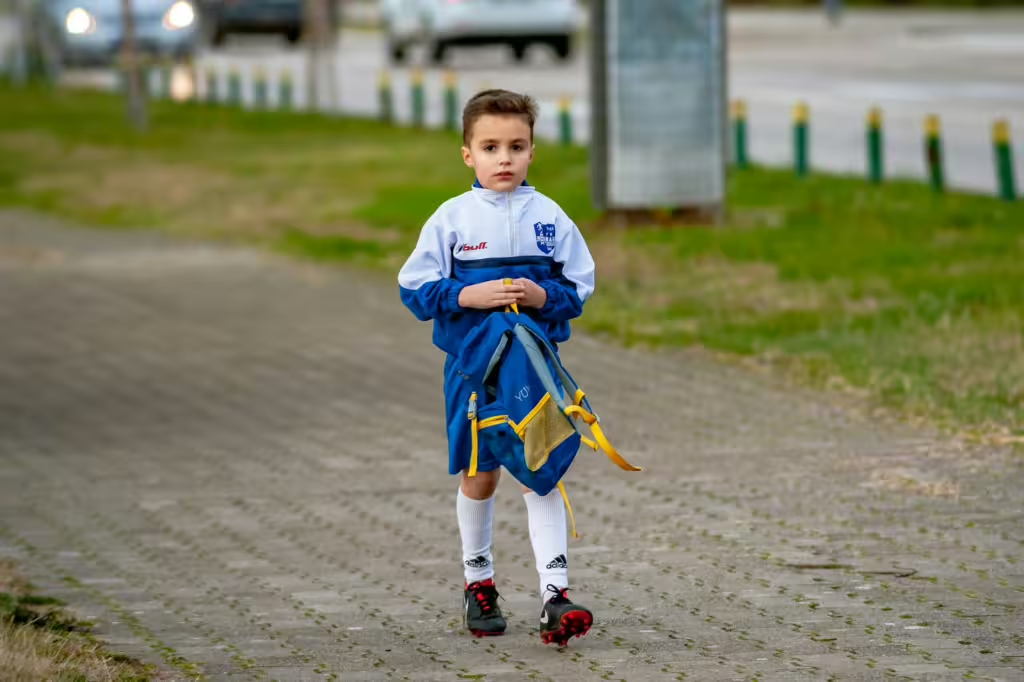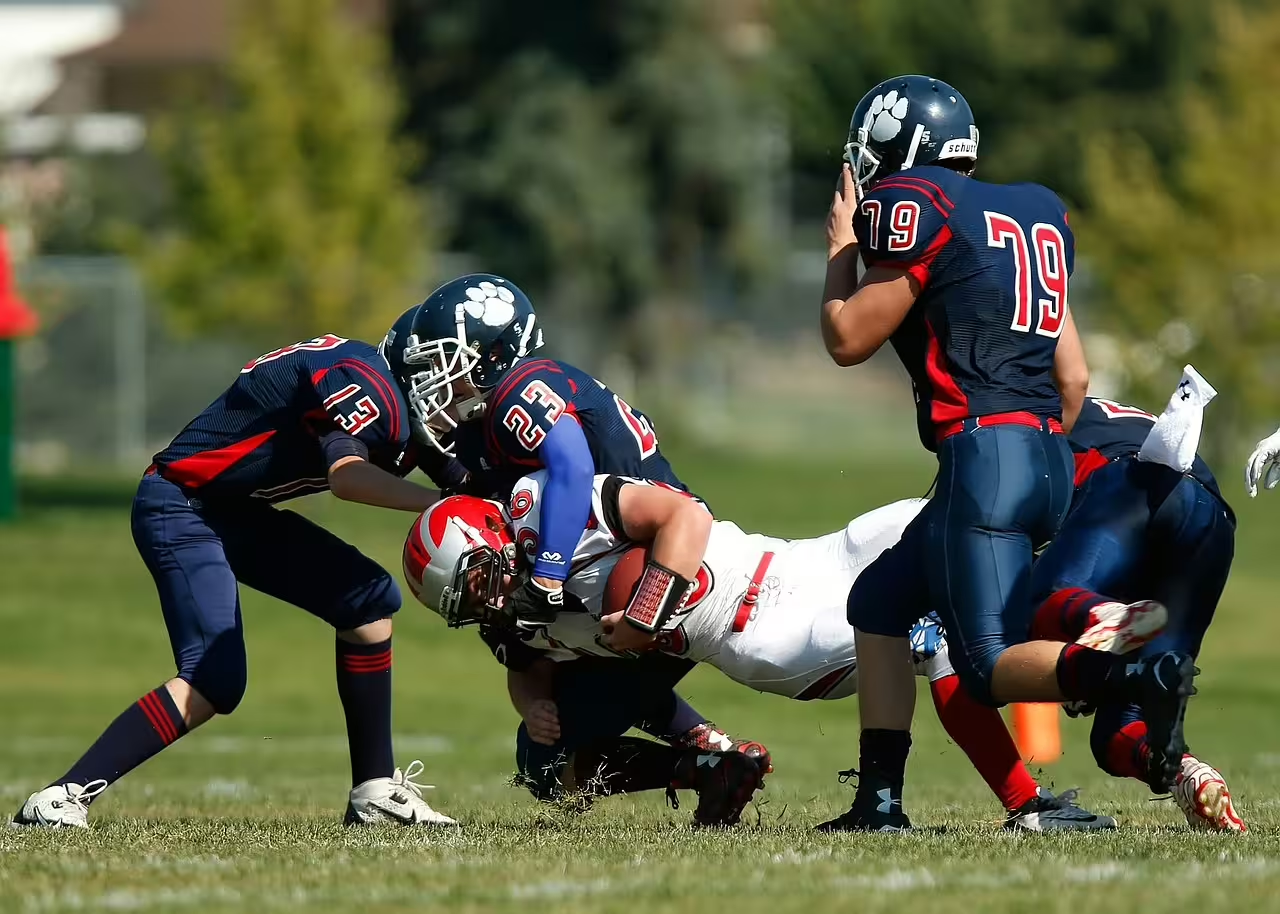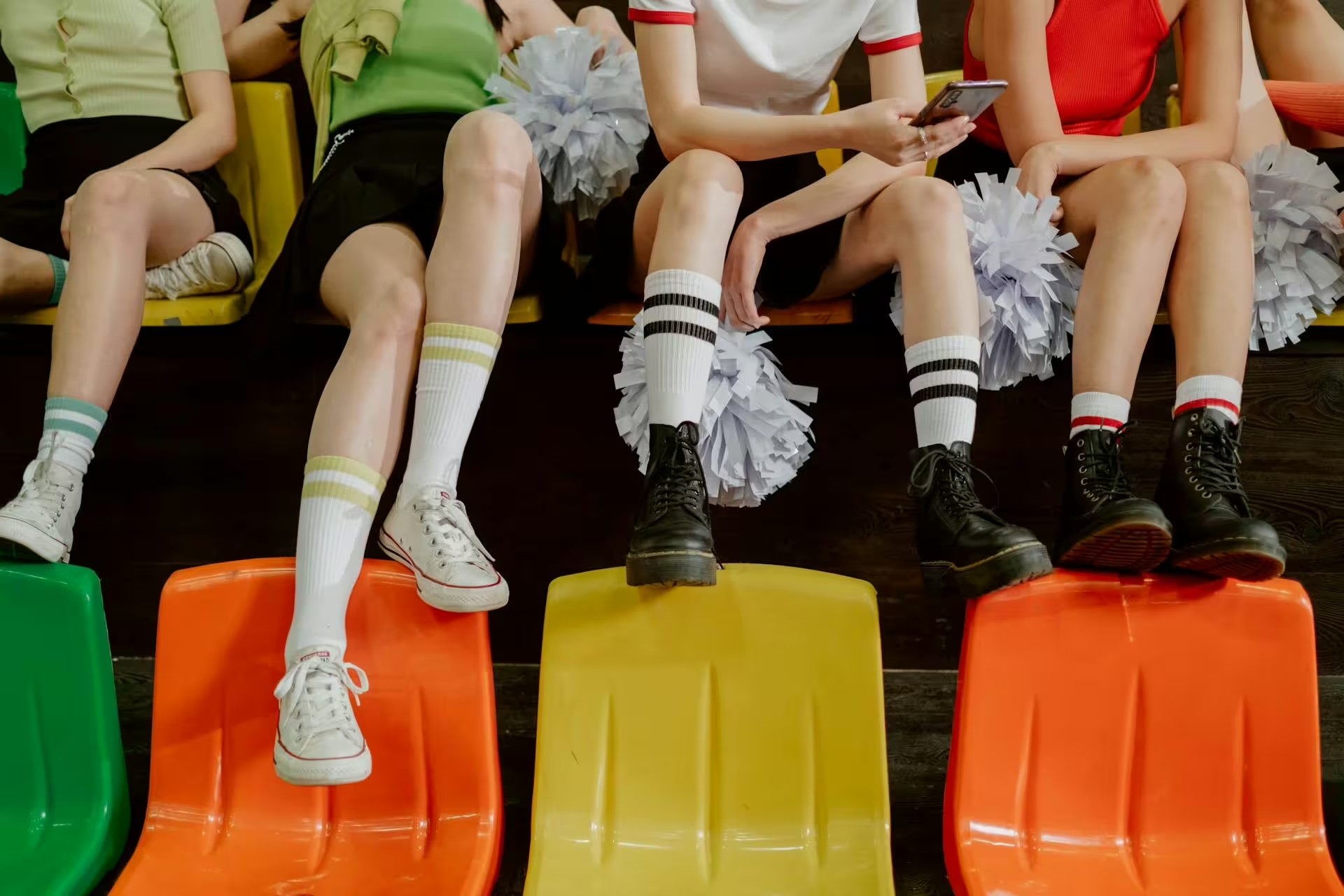We all know how tough it is to be a kid in sports. You want to succeed, you want to be the best, but you aren’t yet aware of how much of that depends on your work ethic in terms of the game. This revelation can happen at any age, but it’s particularly difficult when you are a child.
Think about your own youth sports experiences. Have you ever tried something hard, like learning a new sport, practicing a tough skill, or coming back after a loss? It likely felt extremely frustrating in the moment. You may have even wanted to give up entirely, call it quits. If you or your child has felt this way, you’re not alone! This is the point we’re trying to make, that many athletes—young and old—have had their own struggles and challenges to overcome in their sports career. The thing they have to remember is that the key to success in sports (and in life, in general) is persistence.
Children don’t have the coping mechanisms they need right away, those life lessons must be learned through experience, just as progress must be bought through persistence. This means that they need to learn to stick with their chosen sport or task, even when it’s hard, and find the strength to keep going. Persistence is what helps soccer players master tricky moves, gymnasts nail difficult routines, and runners push through the last lap. In this article, we will explore how persistence can help young athletes reach their goals. To do this, we will share some valuable tips for staying motivated even when the going gets tough.
What Is Persistence, and Why Does It Matter?
The reason why persistence matters is fairly simple. We develop it in the same way we build a muscle; that means the more we practice it, the better we get. Persistence is fed by determination, which loops back around and makes us more persistent. So once we get these two concepts working in tandem, we create a positive feedback loop that can increase our prowess and our desire to get even better!
Persistence itself is defined as the ability to keep working toward a goal, even when things don’t go your way. Athletes who manage to develop their “persistence muscles” are more likely to achieve their dreams because they:
- Learn from failure: Kids need to learn that mistakes are an integral part of the process. They are going to happen, regardless of intent, so the best way to deal with them is to accept them and learn from them. The most successful, most persistent athletes see failure as a chance to improve rather than a reason to give up entirely.
- Stay focused: Good athletes don’t let distractions or setbacks stop them. They remain on task and roll with the punches.
- Build confidence: Every time a child overcomes a challenge, they prove to themselves that they can do those same hard things that they once struggled with. As we said earlier, persistence is born of determination, which is also born of success.
- Achieve long-term success: The loftier the goal a child sets for themself, the longer it might take for that goal to be reached. Big goals take time, but constant persistence helps young athletes stay committed to their dreams. If a child understands persistence, it doesn’t matter how big that goal is, they will still be bound to reach it.

Why Does It Sometimes Feel So Hard?
As children, it’s often hard to see any sports goal as near impossible, at least right from the start. It is at those times, in the beginning, when sports (or anything) feels impossible. Here are a few common reasons your child might struggle at the onset:
Pressure to be perfect: Nobody likes to mess up, but expecting perfection can make a child feel like giving up when things don’t go right. This is why it’s so important that we as parents don’t set the bar too high, especially at the beginning of a child’s foray into sports. That said, even at varsity level, setting high expectations can lead to disappointments and discouragement all around.
Fear of failure: For children, or anyone really, trying something new can be scary. This is especially true if your child is afraid of not succeeding. It’s our job as parents to minimize that fear and help them realize that there is nothing to be afraid of. Failure may happen, but its not the end of the world. In fact, it’s just a chance to learn how to get better.
Comparing yourself to others: It’s easy for children to feel discouraged when they see other players doing better than themselves. Comparing ourselves to others is a big part of why social media is so detrimental to our psychological health, so we certainly don’t want to encourage that behavior on the sports field. Let your kids know that not everyone has to be the best, some kids will be better, but that all they should worry about is their own success.
Burnout: Oftentimes, practicing too much without taking breaks can make young athletes feel tired and unmotivated. It’s important to be mindful of the signs of burnout so that you can give your kids a much-needed break.
As you can see, there are silver linings here. With the right mindset and strategies, you can help your children push through these tough moments and come out stronger.
How to Stay Persistent: Tips and Tricks
If you or your kid has ever felt like giving up, here are some ways to keep going and stay persistent:
Set Small Goals
Big goals, like winning a championship or mastering a difficult move, can feel overwhelming; and frankly, that’s a lot of pressure to put on child athletes. The best way to avoid this is to break those goals down into smaller steps that your kid can tackle one at a time. For example, instead of saying, “I want to be the best swimmer,” have them focus on improving their stroke technique or shaving a second off their lap time.
Celebrate Progress
Always remember to celebrate even the little things! Every small improvement can be a big win if framed that way. Did your child score a point in practice? Finally learn to dribble with their non-dominant hand? Did they finally learn how to catch a ball while guarding first base? Celebrate those little moments of success and your child will be rewarded with a newfound appreciation for their own burgeoning ability. Recognizing your child’s progress keeps them motivated and reminds them that they are moving in the right direction.
Learn from Mistakes
Instead of feeling bad about mistakes or pointing them out, help reframe your child’s though process so that they think of them as opportunities to learn. Have your kid ask themselves, “What can I do differently next time?” Many of the greatest athletes—like Serena Williams or LeBron James—have said that their biggest failures taught them far more than their most noteworthy successes. Mistakes, in general, often carry the most important lessons.
Focus on Effort, Not Results
It’s a hard lesson, but children need to learn that, no matter how hard they try, they can’t control everything that happens in a game. They can’t always control the score of a game or how well their teammates or opponents perform. That said, kids can control the amount of effort they put into a match. Teach them that as long as they give 100%, they can be proud of the results, no matter the outcome.
Stay Positive
Always remember that a positive attitude can make a huge difference; both on your part and on your child’s. When your kid is feeling frustrated, try having them replace negative thoughts like “I can’t do this” with positive ones like “I’m getting better every day.” Help them to surround themselves with supportive teammates, coaches, and friends who can also help you to manage that positivity in a meaningful way.

Take Breaks When Needed
Persistence doesn’t mean pushing oneself to the point of exhaustion. If your kid looks to be feeling burnt out, have them take a break. Resting the body and mind can help us to come back stronger and more focused for the next big bout.
Visualize Success
Have your child close their eyes and picture themselves succeeding as much as they can. Have them imagine making the perfect shot, sticking the landing, or crossing the finish line. Visualization can boost a person’s confidence and help them to stay motivated.
Ask for Help
Teach your child that it’s okay for them to lean on others for support. If they are struggling with a specific skill or feeling discouraged, encourage them to talk to a coach, teammate, or even yourself!
More Inspiring Stories of Persistence in Sports
Bethany Hamilton
Bethany Hamilton, a professional surfer, once faced perhaps the toughest challenge a surfer can face. At only 13 years old, Bethany lost her arm in a shark attack. Despite the maiming, she didn’t let this setback stop her, nor did she give up on her dream of surfing. Through sheer determination, Bethany adapted to her new circumstances and returned to professional surfing, inspiring millions with her story.
Tom Brady
Unless you’ve been living in a cave, you’ve probably heard of Super Bowl legend, Tom Brady. This man is known far and wide as one of the greatest quarterbacks in NFL history, but he wasn’t always considered such. In fact, Tom Brady was the 199th pick in the NFL draft—far from a top prospect. But his persistence, hard work, and belief in himself turned him into a seven-time Super Bowl champion.
Wilma Rudolph
As a child, Wilma Rudolph faced serious illnesses and physical challenges, including polio. This disease left her completely unable to walk without braces. Through persistence and an unbreakable spirit, Rudolph not only overcame these obstacles but went on to win three gold medals in track and field at the 1960 Olympics.

How Parents and Coaches Can Encourage Persistence
As parents and coaches, we all play a big role in helping young athletes build persistence. Here are some additional ways that we can encourage them to succeed:
Praise Effort, Not Just Results
Focus on the hard work your child or your team puts in, regardless of the outcome. Know that you should celebrate progress and improvement to show them that persistence pays off.
Be a Role Model
It’s important to show children a good example of persistence. Do this by demonstrating the times in your life that you have been persistent and how it led to either success or a learning experience. Be open, share stories of challenges you’ve overcome, and let your child or the kids in your charge see you handle setbacks with a positive attitude.
Encourage a Growth Mindset
Help kids understand that skills and abilities aren’t something that can be fixed. Skills are something that grow best with effort and practice. Teach your kids to say “I can’t do this yet” instead of “I can’t do this.”
Activities to Build Persistence
Want to help your kid practice persistence? Have them try these fun activities:
The Longest Dribble Challenge
Set a timer and see how long your child can dribble a basketball without stopping. Each time they practice, try to have them beat their previous record.
The Practice Jar
Every time your child practice a skill, put a marble or coin in a jar. This way, they can watch as the jar fills up and be reminded of their hard work and dedication.
Buddy System
Have your kid team up with a friend or teammate to work on a skill together. Have them encourage each other and celebrate progress as a team.
The Role of Fun in Persistence
While persistence is about hard work, it’s also important that your child has fun. When a child enjoys what they are doing, it’s easier for them to stay motivated.
Cultured Athlete Says…
Persistence is one of the most powerful tools your child can have when it comes to sports. Remind them that success is not about being perfect or always winning—it’s about showing up, trying their best, and never giving up. Follow the advice as we have laid out above and we guarantee that the next time your child faces a tough challenge, they can push through and succeed; just as hundreds of professional athletes have done before them.
Discover more from CulturedAthlete
Subscribe to get the latest posts sent to your email.






